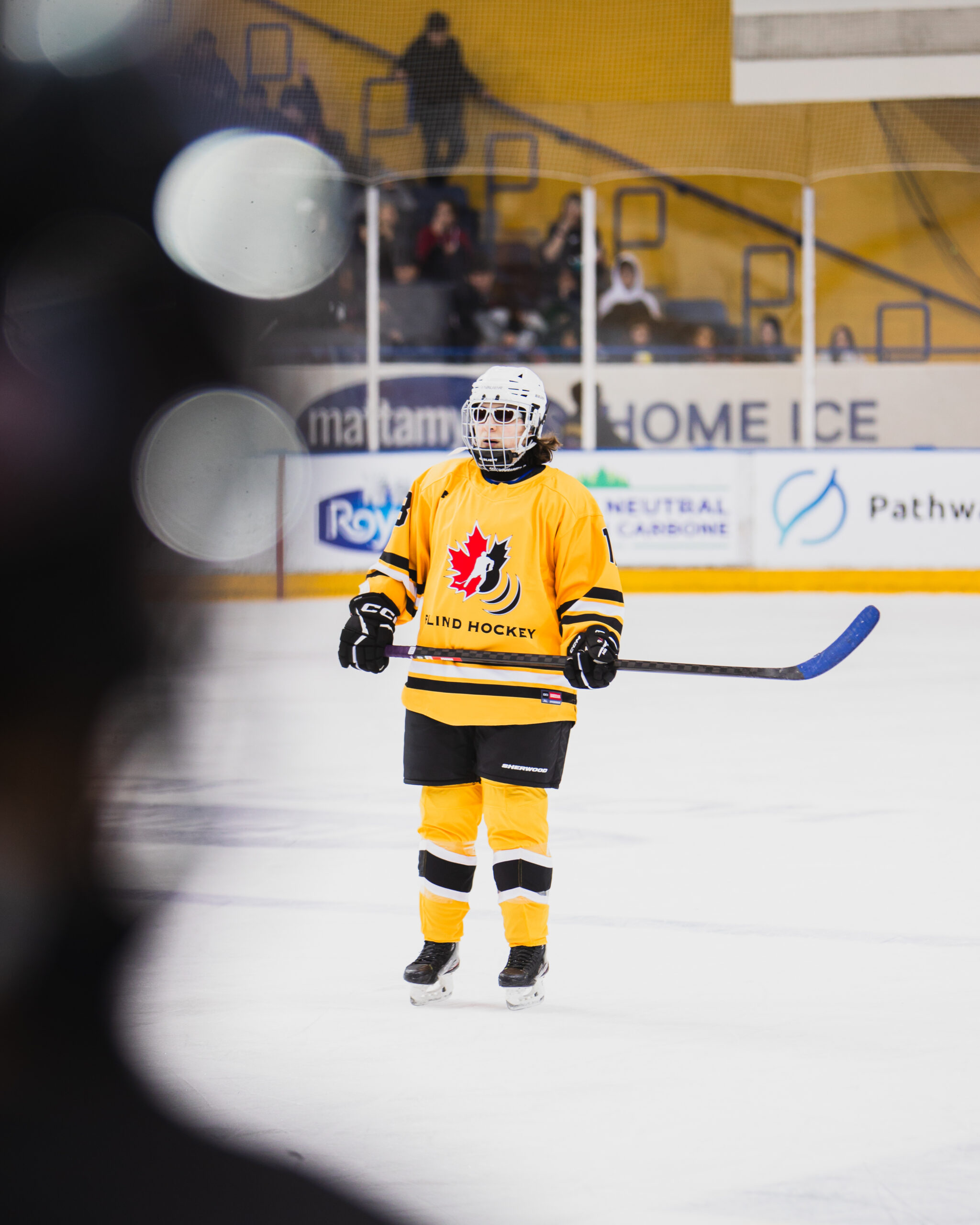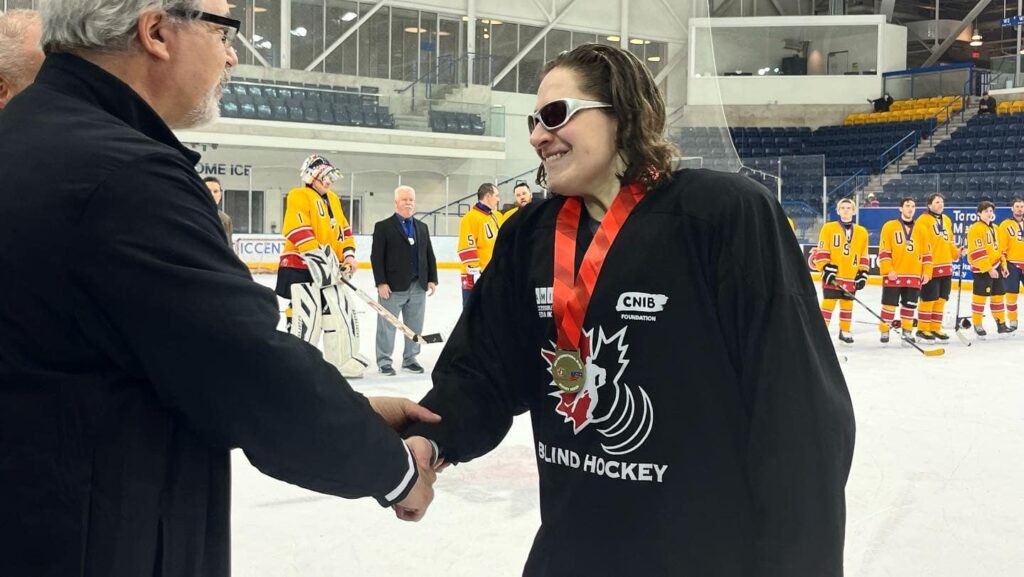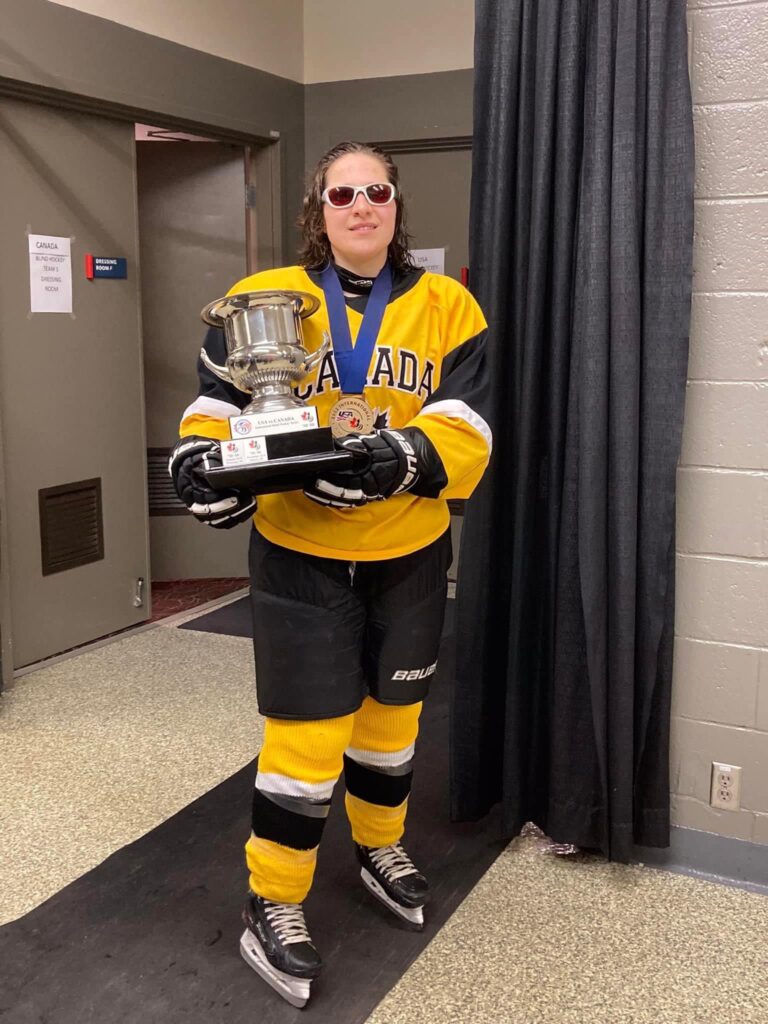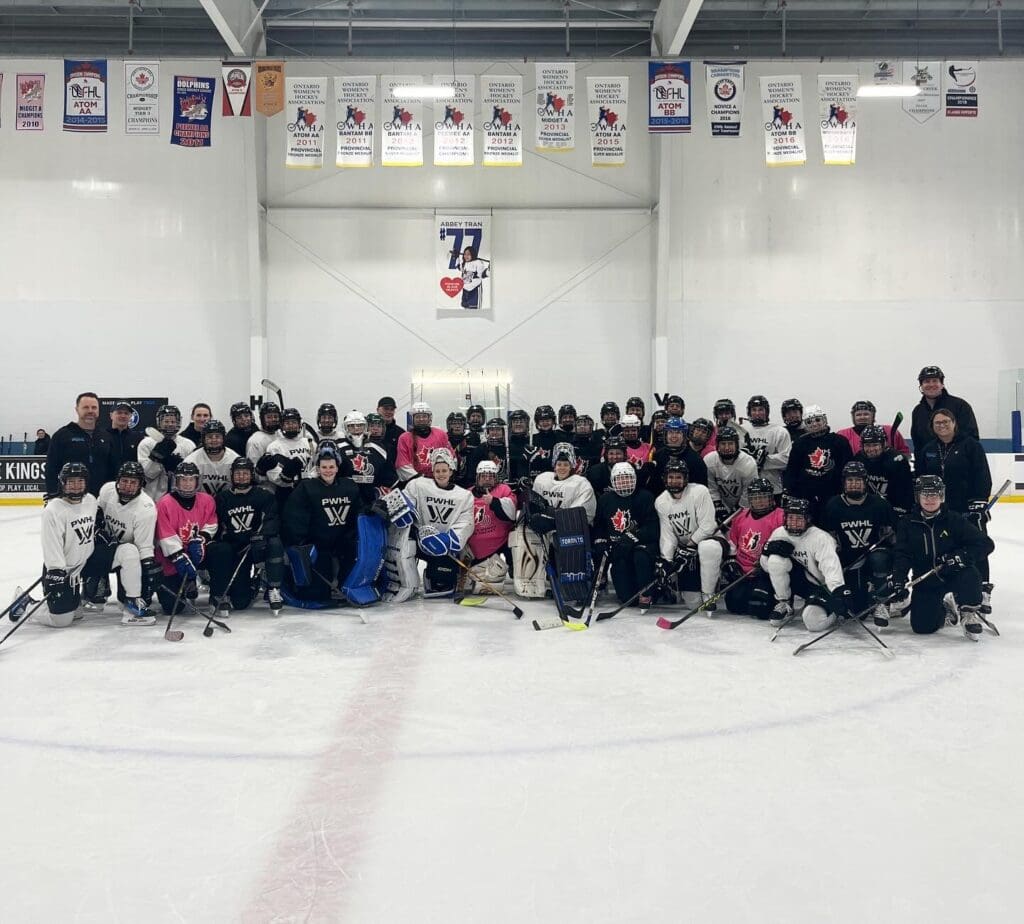Canadian Blind Hockey recently named the 2024 Canadian National Blind Hockey Team, which features 20 players representing seven different provinces spanning the country from Vancouver to St John’s. Amanda Provan from Sudbury is the only female blind hockey player to make the team! We chatted with Amanda to learn more about the sport and her own athletic career. —Vita Daily
For those who don’t know/are curious, what is blind hockey? We’d love to know a bit about the history of the sport, how it’s played and what participation is like in Canada.
Blind Hockey is very similar to traditional hockey with a few adaptations to make the game accessible for players who are blind or partially sighted. At the recreational level, Blind Hockey is played by anyone with a visual impairment, at the competitive level, participants must be legally blind, having 10% vision or less. There are three major adaptations in the sport of Blind Hockey, one of the most notable being the puck.
- The Blind Hockey puck is larger than a traditional hockey puck (5 and a half inches across and one and two thirds inches high), it is made out of hollow steel and contains 8 ball bearings that rattle around and make noise so it can be tracked by players audibly.
- Another major adaptation of Blind Hockey is the “Puck Pass” rule. The referees carry a secondary electronic whistle that they use when a clean pass is made by the attacking team in the offensive zone. This whistle indicates to the goalies, who are totally blind or blind folded, that the puck can now be shot on net.
- Blind Hockey nets are 3 feet high as opposed to the traditional 4 foot high hockey nets. This gives our goalies, who are totally blind, less net to cover. The first ever blind, Hockey Team, the Toronto ice, owls, was established in 1972., today, the sport is played from coast to coast in Canada. There are currently 15 blind hockey programs running across Canada today.
Congrats on being named to the 2024 Canadian National Blind Hockey Team! How does that feel … and how does it feel to be the sole woman on the team?
Thank you! Being named to the 2024 Canadian National Blind Hockey Team is an incredible honour and means the world to me. I’ve worked very hard to get where I am and hearing my name called during the team announcement is a feeling that can’t be put into words. It is a dream come true to be on the Canadian National Blind Hockey team. Being the only female player on the team is a unique feeling. I’m so incredibly happy to be a part of this team, and to be able to show female representation at this level means a lot to me personally. I want to be able to show young girls and women that it’s possible to make this team and compete with the men. My teammates have always been very supportive of me and more or less just treat me like “one of the guys,” making me feel comfortable.
What will the coming year look like for the Canadian National Blind Hockey Team? What are you most excited about?
Currently, the Canadian National Blind Hockey Team is focused on our upcoming series against the United States the weekend of April 12 to the 14th in St. Louis. Following that we will have our training camp in July. Personally, I look forward to all the events that I get to attend that are Blind Hockey related but I’m most looking forward to playing against team USA. It’s always a very exciting series and to be able to play at that international level is a dream come true for me.
From your personal experience, why does representation matter in sport, both for blind athletes and for female athletes? What do you suggest Canadians who wish to be allies in this do?
I believe that representation is so important, being able to see people just like you accomplishing things that you never thought possible for yourself is a very powerful thing. Seeing someone who you identify with do things that you only dreamed of or didn’t think possible, gives you hope and encouragement to go out and try things that you wouldn’t have before. It shows you that you’re just as capable. For Canadians who want to be allies I think the most important thing is to spread the word about Blind Hockey the more people we reach the more lives we change.
What is your training regimen like? What does prep for competition look like?
I trained between six and seven days a week, focusing primarily on cardio strength and individual skills, such as stickhandling and shooting. Competition prep is much of the same with a little less intensity to make sure I’m also well rested for the competition itself. Hydration, nutrition and recovery are also very important.
What’s your perspective on the evolving landscape of blind hockey and its impact on athletes?
Blind hockey has had tremendous growth throughout the last few years and we need to continue to grow the sport internationally. I think it’s an incredible sport and community and the more we can spread the word about Blind Hockey and the game itself, the better. It has a huge impact on athletes lives, and it’s such a positive thing for so many people. Blind Hockey changes lives mine included. It’s not just a sport. It’s a community, it’s a family.
What’s next for you, personally and professionally?
I’m just going to keep training to be the best athlete I can be.




Be the first to comment